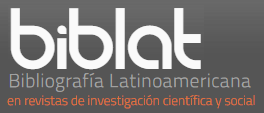Reminiscence process: a means of intergenerational interaction; an alternative way of health promotion
DOI:
https://doi.org/10.5433/1679-0367.2003v24n1p3Keywords:
Health promotion, Intergenerational interaction, Reminiscence.Abstract
Brazil is now witnessing a rapid ageing of the population process at the same time that the proportion of young people in the population is still high. These age groups are usually considered unproductive and consumers of resources. However, both, young and elderly people can give an enormous contribution to society through intergenerational activities, still little explored in the country. In 1998 an intergenerational project was initiated in Ceilândia, situated in the Federal District of Brasília, as an extension of a pilot programme previously initiated in the city of Taguatinga, in the same region. The project aimed to promote the well being of elders, children and adolescents, using reminiscence processes as a means of interaction. The purpose of this study is to evaluate the project according to the participants’ point of view and to enhance the contribution they could give for the individual and the community well-being From November 1999 to April 2000 a qualitative research project using focus groups technique was conducted. Following a discussion guide, 13 groups of students, ranging in age from 8 to 13 years old, 3 groups of elders of 60 years old or over, and one group of teachers were interviewed so as to collect data related to the intergenerational interaction programme developed in Ceilandia, Federal District, Brazil. The main findings suggested a change in attitude of students and teachers toward old age and elderly people. Participating elders reported improvement in their health condition. For all participants the findings suggested a better understanding between generations. It seems that the reminiscence intergenerational activities contribute to building mutual trust and solidarity between generations. These results seem to indicate that this is an alternative way to invest in health and in the well-being of young and elderly people. However, further work is needed to support these findings.
Downloads
Downloads
Published
How to Cite
Issue
Section
License
Copyright (c) 2009 Semina: Ciências Biológicas e da Saúde

This work is licensed under a Creative Commons Attribution-NonCommercial 4.0 International License.
adopts the CC-BY-NC license for its publications, the copyright being held by the author, in cases of republication we recommend that authors indicate first publication in this journal.
This license allows you to copy and redistribute the material in any medium or format, remix, transform and develop the material, as long as it is not for commercial purposes. And due credit must be given to the creator.
The opinions expressed by the authors of the articles are their sole responsibility.
The magazine reserves the right to make normative, orthographic and grammatical changes to the originals in order to maintain the cultured standard of the language and the credibility of the vehicle. However, it will respect the writing style of the authors. Changes, corrections or suggestions of a conceptual nature will be sent to the authors when necessary.
This Journal is licensed with a license Creative Commons Assignment-NonCommercial 4.0 International.
















